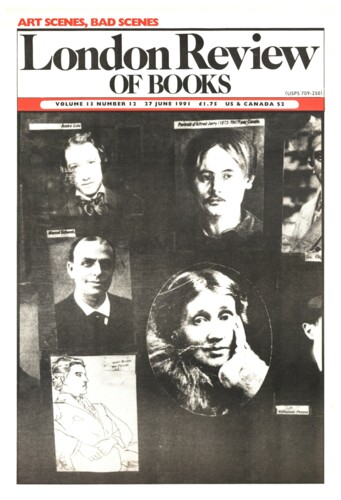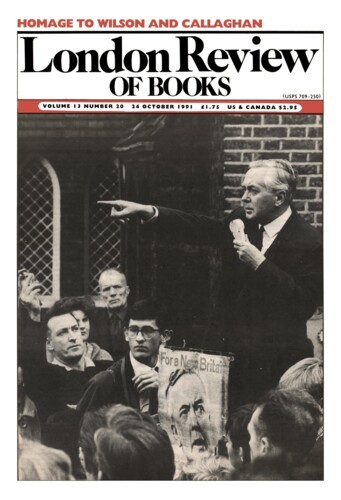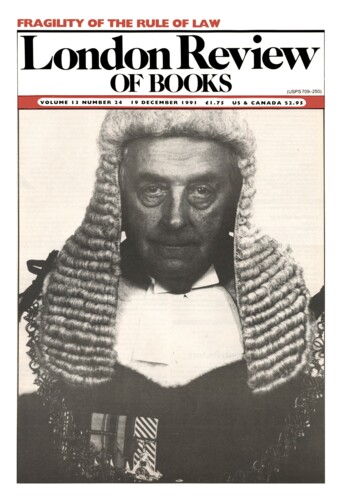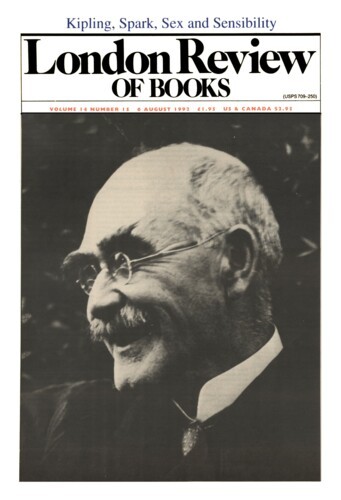Scottish Men and Scottish Women
Jenny Turner, 27 June 1991
James Kelman was born in Glasgow in 1946. After spells in the US as a teenager, London as a young adult, he returned to Glasgow, where he now lives and works. Janice Galloway was born in Ayrshire in 1956. She worked in Ayrshire as a schoolteacher until recently, when she started making enough money from her writing to give up teaching and move to Glasgow. Kelman spotted Galloway’s first completed story, ‘It was’, in 1985, and encouraged her to submit it to Edinburgh Review, the quarterly magazine which publishes work-in-progress from Kelman and other Scottish writers. Galloway went on, as Kelman had before her, to publish her first big book, the 1990 novel The trick is to keep breathing, with Polygon, the small publisher of which Edinburgh Review is a part.





